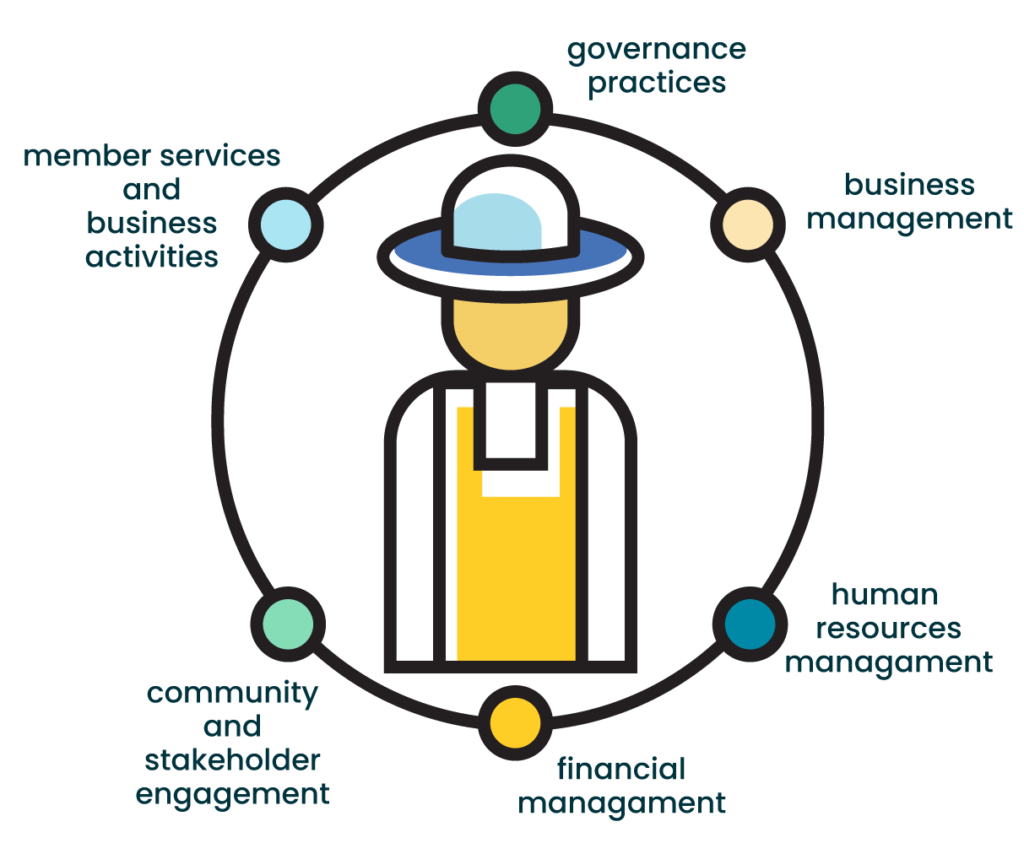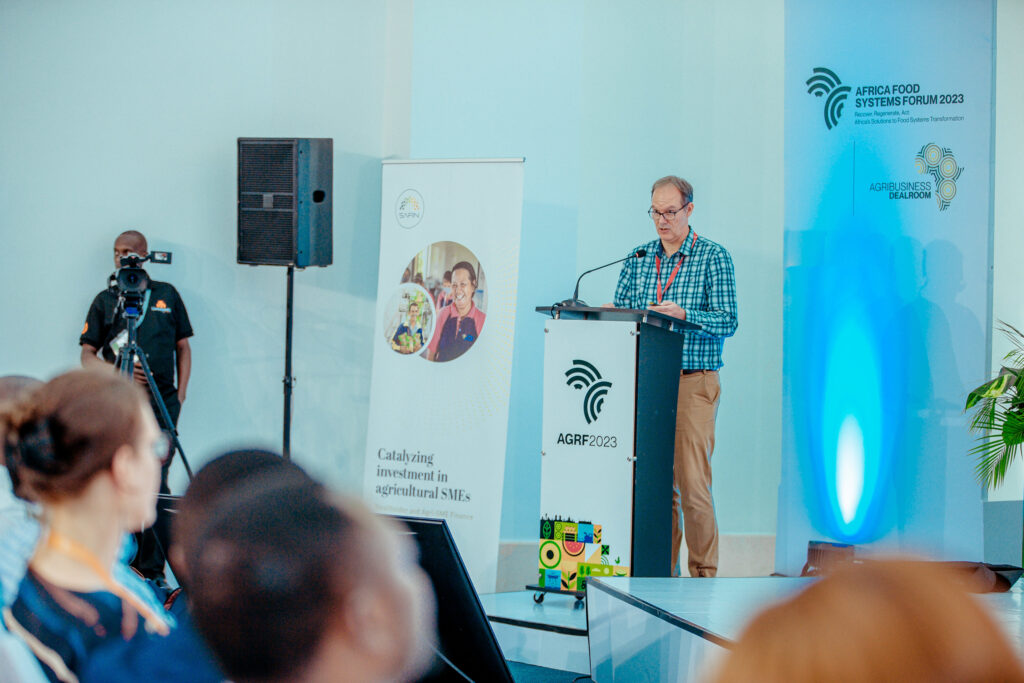


The global guidelines will make the capacity building support systems for farmers more efficient and aligned. Therefore, farmers will have more clarity on what professional core capacities are needed to close deals with buyers, and financial and other service providers.
No, this Standard is relevant for all forms of Agricultural Enterprises. The first 5 capacities are typical professional capacities which we would expect to see in any successful enterprise. The 6th capacity (member services) is more relevant to Farmer Organizations and Cooperatives.
Fair Trade, GlobalGAP and other certification schemes work with a small percentage of Farmer Organizations in each Country. Certification schemes are therefore exclusive by nature. This Standard creates a common language which enables a better understanding of the potential within all farmer organizations. It is hoped this will lead to improved support to all Farmer Organizations. Knowledge is power. What we have now is a Black Box.
If your organization is a farmer organization:
Regardless of the agricultural products you produce and the local context your organization is part of, using the global guidelines will offer you a better grasp of what market actors are looking for when they search professional farmer organizations to partner with. You can use the document as reference for your own capacity building and business strategy.
If your organization is a capacity builder:
You will have a clear reference to what market actors are looking for when they search for farmer organizations as reliable partners. By using the global guidelines as a guidance, your organization can better couple your capacity building efforts to the specific needs of the farmer organizations you work with, so that they can access markets more easily.
If your organization is a buyer or input supplier:
The global guidelines will create a common understanding between your organization– as a buyer or an input supplier– and capacity builders working with professional farmer organizations. Even with different (market) interests, there will be a common aim: to achieve the development of professional farmer organizations to become reliable partners and meet contract requirements. For the relationship with farmer organizations, the global guidelines will be a valuable reference to communicate what is expected of each other, as professional businesses. Additionally, you will find it easier to connect farmer organizations you work with to financial institutions prepared to lend the capital your suppliers need to further invest in their businesses.
If your organization is a microfinance/financial institution:
By creating the references for farmer organizations to be professional according to what the market players expect them to be, the global guidelines will also provide your organization with a less risky ecosystem. This will help farmer organizations better understand and build the capacities that will make them reliable, profitable business partners– better preparing them for your due diligence processes. This means that (micro)financial institutions, like yours, will notice that more farmer organizations have become reliable customers.
For all the latest about our work and updates about our partners, signup for our newsletter.
We use cookies on our website to give you the most relevant experience by remembering your preferences and repeat visits. By clicking “Accept All”, you consent to the use of ALL the cookies. However, you may visit "Cookie Settings" to provide a controlled consent.